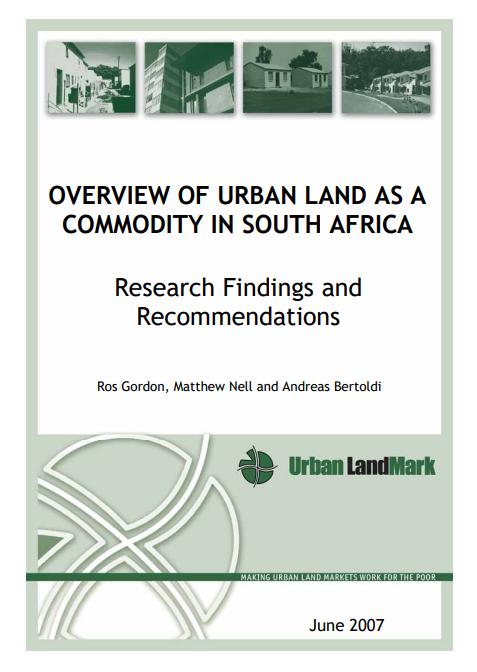Land as Commodity in South Africa

This report proposes useful categories for urban land in South Africa and records the contemporary trends and patterns of land ownership in South Africa's towns and cities. It also identifies the main actors influencing urban land transactions and the individuals, institutions, or groups that benefit from the operation of the urban land market, as well as those who do not, providing possible explanations of why this may be the case.
The report recommends that regulation and urban management are key factors influencing the effectiveness of both the formal and informal property markets. Accordingly, appropriate regulations need to be implemented and the quality of urban management should balance the needs of investors with those of the poor. To understand urban property markets and the efficacy of interventions implemented, it is critical that there is consistent and reliable information on both formal and informal property markets. Accordingly, a consolidated data set and data model for analysing and monitoring the urban property/land market should be developed by government. Government interventions should seek to expand the access of formal urban land market to improve accessibility by low-income households.
Abstract based directly on source.


Comments